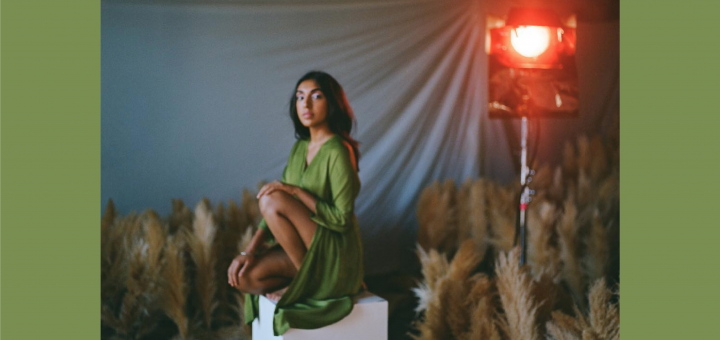How a radical shift in the literary world is reviving poetry

By Sarah Green, Staff Writer
We’ve been there — stuck in a high school English class, head in our hands, attempting to dissect the intricate words of Shakespeare, Homer or Dickinson. We’re all familiar with that feeling of frustration — reading the same sentence over and over again, desperately hoping for something, anything to make sense.
For as long as I can remember, I saw poetry as an outdated and stuffy form of writing that had no cultural, social or historical significance. In fact, as a budding writer, I made a point of vocalizing my distaste. Whenever I was assigned a poem to analyze in English class, I would hastily search up the Sparknotes summary and passively regurgitate the information. It was dismal to say the least.
However, my perspective completely shifted when I discovered the evolving genre of contemporary poetry. Made up of poets such as Rupi Kaur, R.H. Sin and R.M. Drake, this genre embodies the phenomenon that revolutionized the poetry community.
Many see Kaur as the catalyst in the poetry revolution. Since the publication of her book Milk and Honey in 2014, the poetry genre has become one of the fastest-growing categories in book publishing. Kaur’s poetry collection has been translated into 35 languages and has sold over 3 million copies worldwide.

R.H. Sin initially found support for his poetry on Instagram with over 1.5 million followers. Now, with 18 published poetry books, Sin is a New York Times best-selling author. Photo courtesy of R.H. Sin Instagram
Kaur’s career started on an unlikely medium. In 2012, she began posting her poems on Tumblr and later switched to Instagram, coining the term “Insta-poet.”
Like it or not, Insta-poets are defining a new genre of poetry for the millennial generation. Unlike traditional poetry, a majority of Insta-poets’ content advocates for equality, diversity and self-acceptance. Kaur’s poems contain themes of love, heartbreak and womanhood which are incredibly relatable to the millions of millennials scrolling through their Instagram feeds.
In an interview with The Guardian, Kaur’s publisher, Kirsty Melville, explains the ingredients behind Kaur’s success.
“The emotional intensity of Rupi’s message of self-empowerment and affirmation, combined with her passionate audience really resonated,” Melville explains.
“Rupi’s honest, authentic voice speaks to young people who relate to her depiction of pain and struggle but ultimate sense of hope. Rupi is not afraid to challenge taboos, and this brave form of expression inspires her readers.”
It is precisely this sense of vulnerability that makes Insta-poets so successful. Rather than alienating their audience with complex language and structure, Insta-poets are forming meaningful connections through their heartfelt content.
However, this transformative Internet subgenre has not evolved without its fair share of controversy. Literary critics have not held back their criticism, labelling Insta-poets as “lazy” and “amateur.” Some critics say their style and medium is diluting the quality of poetry and is contributing to the commercialization of the art form.
In the PN Review, poet Rebecca Watts argues that Insta-poets are ruining a once beautiful form of expression.
“Of all the literary forms, we might have predicted that poetry had the best chance of escaping social media’s dumbing effect; its project, after all, has typically been to rid language of cliché,” says Watts.
“Yet in the redefinition of poetry as ‘short-form communication’ the floodgates have been opened. The reader is dead: long live consumer-driven content and the ‘instant gratification’ this affords.”
Despite this backlash, almost half of poetry books sold in the U.S. last year were written by Insta-poets. According to Nielsen BookScan, young girls and women from ages 13 to 24 are now the biggest consumers of poetry.
It is impossible to ignore the radical shift that has occurred in the literary world. For so long, poems have been dominated by a “high-brow” industry, filled with academic prose. Now, people of all ages are able to read, appreciate and share poems brimming with all kinds of emotions, stories and experiences.
Not only that, in the world of social media, it is now possible for young people to share their own form of poetry with the world. By communicating their feelings and experiences, young people are engaging in the art of poetry in today’s digital age, making it a medium of self expression.
Now, I am the proud owner of almost a dozen poetry books. Dare I say it, I’ve even started writing my own poetry. Looking back at my high school self, I wish I could tell her not to write off poetry at such a young age.
Because as I evolve, so does the beautiful art form of poetry.



